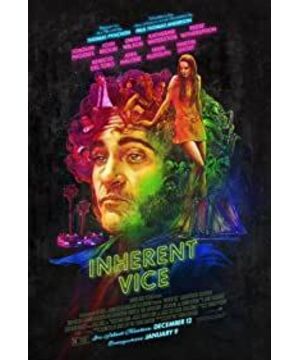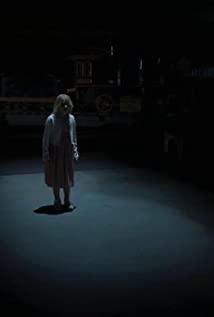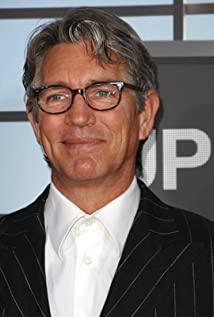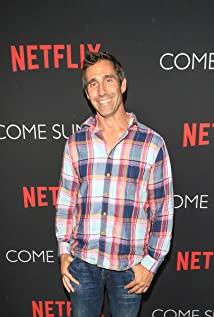The first time I watched this film was in May last year. There were three Paul Thomas Anderson films in the theater on the weekend: "Magnolia", "The Blood Is Coming" and "The Nature Is Evil". My favorite is this "Sexual Evil". In the film, the hippies are spraying clouds and fog, and the story is clouded and misty. A group of people were very excited after watching it. On the one hand, the film was lost to the "Imitation Game" in the "Oscar Best Adaptation" and sighed and cursed the Oscar judges for their partiality or unfairness. On the other side, it was only in early May. He threatened that the film will definitely appear in his top ten of the year. There are also people who don't know the incomprehensible and confusing story of "Nature Nature", like me, want to find out in Thomas Pynchon's original work. I borrowed a book from the library, but when I opened it, I found a lot of white powder hidden in the pages of the book. Is it possible that a drug dealer with good taste chooses such a novel that is not meaningful but is rarely read and used as a trading tool? Not daring to think about it anymore, swept all the white powder back into the folder, and hurriedly returned the book. It wasn't until last month that I finally borrowed the book again and read it all at once. Unexpectedly, all the mysteries in the original work were finally solved; unfortunately, after the causes and consequences have been understood, when I come back to watch the movie, I have lost the “psychedelic” of seeing flowers in the fog. "charm. Fortunately, such an adapted film is still excellent enough, in many places it conveys the charm of the original work just right, and is even more conducive to expression, which is really endless aftertaste. The first is the choice of actors. At the center is Jackie Phoenix, who plays the protagonist hippie detective Dock. His unruly curly hair, raised sideburns, and black soles of feet all perfectly matched the image of Dock's bohemian hippie. In the beginning, Dock, played by Phoenix, was lying on the dark red sofa, the lights and the illuminated curly hair shining golden, and his face was immersed in blue shadows. A thoughtful face under the three coordinated colors, I believe all readers of "Nature is Evil" will firmly believe that this is Doc. The "similarities" of this image are all over the details: a pair of deep green glasses often think about, and slowly become moist when thinking about it. It is the dock who has a large appearance but is affectionate; and some small movements, such as scratching Sideburns, frowning, or picking at the soles of the black feet make the actor and the role have long been integrated in the eyes of the audience. Other outstanding casts include Josh Brolin who played Big Ford, Owen Wilson who played Coy, or Katherine Waterston who played Shasta. Whether it’s Shasta’s "plain area" at the beginning Dressing up, or the T-shirt and bikini when returning suddenly, are all very reminiscent. One of the problems to be solved when adapting the novel to the film is the handling of the monologue and psychological description, and this film delegates the task of narration to the supporting actress Sotireg. She is a former assistant to Dock, and a bit similar to Dock's spiritual teacher, who is proficient in psychic astrology. Such an identity familiar with Doc's reality and spiritual life makes the narration natural and a little emotional. But the processing of psychological description is much more complicated. Many psychological descriptions in the original work play an important role in analyzing and expressing emotions, and the most exciting change in the film in this regard is the ending with Big Ford’s "additional play." On the surface, Big Ford, who has a simple mind and well-developed limbs, is also a "victim" of the times. The policeman, Big Ford, "escaped" the Southern Bay Area as he wished through tough working methods and came to the Los Angeles Police Department to work, but he became an isolated object in his work. He got married and had children step by step, but his life did not improve, only restraints and quarrels. His only confidant was his former partner, but he was removed because he became a thorn in the head of the police station. In the end, the only light in his life is to fantasize about his acting career by starring in some commercials and guest appearances in TV series, or gagging with the hippie boy Dock. Therefore, some people say that Big Ford is envious of Dock. Most of these emotions are speculated in the original work based on Dock's psychological description, but in the film the director uses another extremely wonderful method to achieve the same goal. Towards the end of the movie, Big Ford kicked Dock's house with his big feet, sat opposite Dock, poured all the cannabis leaves left in the plate into his mouth and chewed. Doc on the other side could not help tears. Although he didn't make any positive analysis and excavation of what happened to Geforford, it was an emotional explosion, expressing his anger more intuitively, and allowing the audience to complement the antecedents. It is undoubtedly a huge problem to reduce the 400-page story to more than two hours of the movie. This reflects the director and screenwriter Paul Thomas Anderson's understanding of the structure of the story. "Nature is Evil" structurally imitates Chandler's Marlowe series and other detective novels, and promotes the plot through interlocking clues. And Paul Thomas Anderson only needs to remove a few loops of the clues, and then move forward, so that the streamlining is completed, and the story is still integrated. But there are still some cuts that are regrettable, such as Pynchon’s encyclopedic inventory of rock music and surfing in the book, or Dock’s bizarre fantasies after smoking marijuana. Especially the Silent Continent that Doc saw after taking psychedelic drugs-this is a fable related to the core idea of the story. In addition, when the story happened It was shortly after the murder of Manson, and the analysis or ridicule of this incident can be seen everywhere in the original book. Although several places have been preserved in the movie, it is not clear what kind of background this incident provides to the whole story. In fact, the original book three-dimensionally shows the panic caused by this incident to people in the Los Angeles area-people are no longer safe even in their own homes. And hippies are also affected by this and become objects to beware of. This story is actually an elegy written by Thomas Pynchon and Paul Thomas Anderson to the American "Hippie Age" in the 1960s and 1970s. Hippies are not only physically craving for marijuana and sex, but also psychologically pursuing: they use this approach to resist the decay of the greedy commercial society and to fight against the nihilism of capitalism. What they are fighting against is the actualized "Golden Fangs" company, with the "Golden Fangs" sailboat as its symbol. The formerly favored "protected" number has transformed into a "golden fang" symbolizing greed and evil. The "golden fangs" method of collecting gold is to focus on these hippie addicts: sell them the drugs first, and then help them get rid of them. The most ironic thing is that as long as there are hippies eager to get rid of the greedy society and nihilistic life, the sinful business of "Golden Fangs" will continue. It is here that Thomas Pynchon throws out the fable about the "inherent vice" (the title of the novel and the movie): Atlantis and Lemuria are two heinous sins. The mainland sank in ancient times, and Los Angeles, the city of angels, became the "Noah's Ark" to save them. However, the salvation of all the surviving people could not be guaranteed, because they had been soaked in greed and sin before they boarded the ship. [1] The Chinese translator of "Nature is Evil" also stated in the postscript [1] that this novel, which has been confessed to the cause and effect, is a work of Pynchon that is not very Pynchon. In contrast, the narratives of movies that may have no reason and nowhere are more like Pynchon's past style. Although I also hesitate about these two, which one is the better form of this story. But there is no doubt that because of this story, I fell in love with Thomas Pynchon and Paul Thomas Anderson. [1] Refer to the translation postscript. Vice, used for maritime insurance, the title of novels and movies) parable: Atlantis and Lemuria, two sinful continents sank in ancient times, and Los Angeles, the city of angels, became the "Noah's Ark" to save them. , But it cannot guarantee the salvation of all the surviving people, because before they board the ship, they have been soaked in greed and sin. [1] The Chinese translator of "Nature is Evil" also stated in the postscript [1] that this novel, which has been confessed to the cause and effect, is a work of Pynchon that is not very Pynchon. In contrast, the narratives of movies that may have no reason and nowhere are more like Pynchon's past style. Although I also hesitate about these two, which one is the better form of this story. But there is no doubt that because of this story, I fell in love with Thomas Pynchon and Paul Thomas Anderson. [1] Refer to the translation postscript.
View more about Inherent Vice reviews











